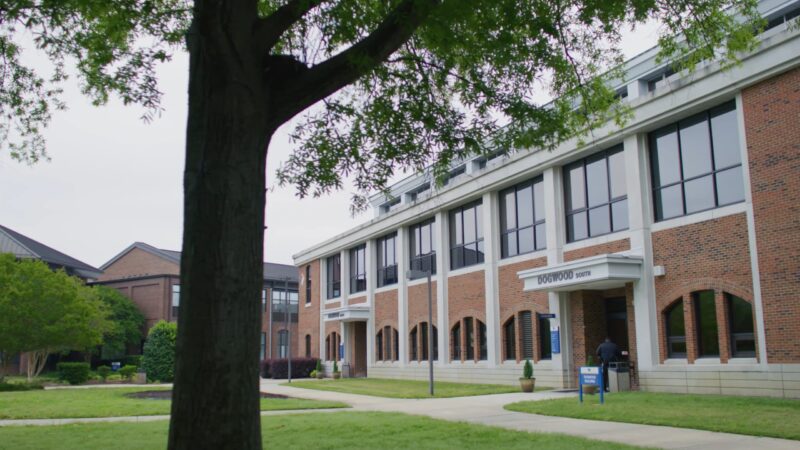Imagine embarking on a journey towards your educational and career goals, but with a roadmap that is both affordable and flexible. This is the essence of attending a local community college.
Often overshadowed by the allure of four-year universities, community colleges offer a plethora of opportunities and advantages that are worth exploring.
In this article, we’ll talk about the benefits of attending a local community college, shedding light on why it can be a smart and strategic choice for many students.
Key Takeaways
- Community colleges have open admission policies, allowing anyone with a high school diploma or GED to enroll, which significantly increases accessibility to higher education.
- Tuition fees are considerably lower than those at four-year institutions, making higher education more affordable and reducing the likelihood of substantial student loan debt.
- They offer flexible scheduling and online course options, catering to a diverse student body including working adults, parents, and part-time students, making education more accessible for those with other commitments.
- They provide a wide range of academic and vocational programs, including transfer opportunities to four-year universities and career-focused education, designed to meet local and regional employment needs.
- Community colleges typically have smaller class sizes for more personalized attention, comprehensive support services, and a diverse student body. They also offer various extracurricular activities, fostering community involvement and personal development.
1. Accessibility and Affordability
Easy Admission Process
Community colleges have open admission policies, meaning anyone with a high school diploma or GED can enroll. This inclusive approach opens doors for many who might find the stringent admission criteria of traditional universities daunting.
It democratizes higher education, ensuring that more people have the opportunity to pursue their academic and professional aspirations.
The process also tends to be more straightforward, reducing the stress and confusion often associated with university applications. Furthermore, this policy helps in creating a diverse student population, enriching the educational experience for all.
Lower Tuition Costs

The most apparent benefit of community colleges is the cost. Tuition fees are significantly lower than those at four-year institutions. This affordability allows students to save money, potentially avoiding substantial student loan debt.
The lower cost also means that students can often afford to explore different subjects without the financial pressure of higher tuition fees. Additionally, this makes higher education more accessible to lower-income families, contributing to greater social mobility.
For many, this is a crucial factor in their decision to pursue further education.
Financial Aid Opportunities
Besides lower tuition, they offer various financial aid options, including grants, scholarships, and work-study programs, making education accessible to those who might otherwise be unable to afford it.
These financial aids can cover a range of expenses beyond tuition, such as books, transportation, and living costs. They often have less competitive requirements than those at four-year universities, making them more accessible to a broader range of students.
Moreover, the availability of financial aid can be a deciding factor for students who are balancing their education with other financial responsibilities.
2. Flexible Learning Environment
Convenient Scheduling

Community colleges cater to diverse student bodies, including working adults, parents, and part-time students.
Classes are often scheduled at various times throughout the day and even on weekends, providing flexibility that can accommodate almost any schedule.
This flexibility ensures that education is attainable for individuals who are balancing other significant commitments, such as full-time jobs or family care.
Evening and weekend classes particularly benefit those who work standard weekday hours.
Online Course Options
Many community colleges offer online courses, allowing students to learn from the comfort of their own homes. This flexibility is invaluable for those balancing education with other responsibilities.
Online courses also allow students to work at their own pace, which can be particularly beneficial for those who need a more adaptable learning environment.
They also open up possibilities for students who live far from campus or who have mobility challenges.
3. Diverse Programs and Pathways

Community colleges offer a wide array of programs, from traditional academic paths to vocational and technical training. This variety ensures that there is something for everyone, regardless of their career goals.
These programs are often designed in consultation with industry experts, ensuring that the skills taught are current and in demand. The breadth of programs allows students to explore different fields before committing to a specific career path.
Many of these programs include practical, hands-on learning experiences, enhancing the educational experience.
Transfer Opportunities

Community colleges provide a pathway to four-year universities through transfer programs. Students can complete their general education requirements at a lower cost and then transfer to a university, often with guaranteed admission agreements.
These agreements often include partnerships with prestigious universities, providing their students with a clear and affordable path to a four-year degree.
The transfer process is typically streamlined, with advisors available to help students navigate the transition. For many students, this pathway provides an opportunity to adjust to college-level coursework before moving to a university setting.
Career-Focused Education
For those looking to enter the workforce quickly, community colleges offer career-focused programs designed to meet local and regional employment needs.
These programs often include hands-on training and internships, providing practical experience. The curriculum is often developed in collaboration with local employers, ensuring that students are gaining relevant and up-to-date skills.
Many of these programs lead to certifications or licenses in high-demand fields, enhancing employability upon graduation.
Additionally, these places often have strong relationships with local businesses, which can lead to job placements for graduates.
4. Supportive Learning Environment
Smaller Class Sizes

Community colleges typically have smaller class sizes, allowing for more personalized attention from instructors. This can lead to a better learning experience and stronger relationships with faculty.
The intimate classroom setting fosters a more inclusive and interactive learning environment, encouraging student participation and engagement.
Smaller classes also allow instructors to better assess and respond to individual student needs, potentially leading to higher academic success rates.
This personalized approach is particularly beneficial for students who may need extra support or encouragement in their studies.
Comprehensive Support Services
These institutions offer a range of support services, including tutoring, career counseling, and advising. This support is crucial for student success, especially for those who may be navigating the college environment for the first time.
The availability of these resources demonstrates the commitment of community colleges to student success both inside and outside the classroom.
Tutoring services, for example, are often provided free of charge and can be instrumental in helping students master complex subjects.
Career counseling services help students align their academic choices with their long-term career goals, ensuring a more strategic approach to education.
5. Community and Personal Development
Diverse Student Body

Community colleges attract a diverse range of students from various backgrounds, ages, and experiences. This diversity enriches the learning environment, exposing students to different perspectives and cultures.
The inclusivity found in these schools fosters a sense of belonging and community among students. It also prepares students for working in diverse environments post-graduation, an increasingly important skill in today’s globalized world.
The interaction with a wide range of individuals can broaden students’ horizons and enhance their interpersonal skills.
Extracurricular Opportunities

Students can engage in numerous extracurricular activities, including clubs, sports, and community service. These opportunities enhance the college experience and aid in personal development.
Participating in these activities helps in building leadership skills, teamwork, and a sense of community. It also allows students to explore interests outside of their academic pursuits, contributing to a well-rounded college experience.
Furthermore, involvement in extracurricular activities can be a valuable addition to a resume, showcasing a commitment to community and personal growth.
FAQs
Can students at community colleges qualify for the same financial aid as university students?
Yes, they are eligible for many of the same financial aid options as university students, including federal grants and loans. They can also apply for specific scholarships and aid programs aimed at community college students.
Do credits from community colleges always transfer to four-year universities?
While many community colleges have articulation agreements with four-year universities to ensure credit transfer, it’s important for students to verify that their credits will be accepted by the specific university they plan to attend.
How do the academic standards at community colleges compare to those at four-year universities?
Community colleges maintain rigorous academic standards and are accredited by the same organizations that accredit four-year institutions. The quality of education is comparable, with many instructors also teaching at universities.
Are there opportunities for research and internships at community colleges?
Yes, many of them offer research opportunities and internships, particularly in career-focused programs. These experiences provide practical, hands-on learning and can be crucial for job placement after graduation.
Can international students attend community colleges in the United States?
Yes, they can. They must meet specific admission requirements, including proficiency in English and visa regulations.
Is the social life at community colleges similar to that of four-year universities?
While community colleges offer a range of extracurricular activities and clubs, the social life can differ from four-year universities due to factors like campus size and student demographics.
However, many students find a vibrant and engaging community at their community college.
The Bottom Line
Choosing a local community college is a decision that offers a multitude of benefits. From affordability and flexibility to diverse programs and supportive environments, these institutions are pivotal in shaping the future of many individuals.
They serve as gateways to further education and career advancement, proving that quality education can be both accessible and transformative.
